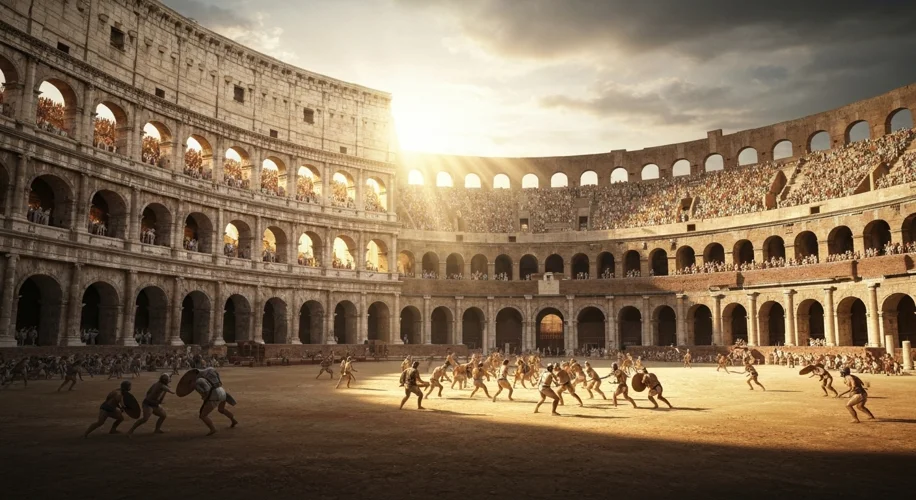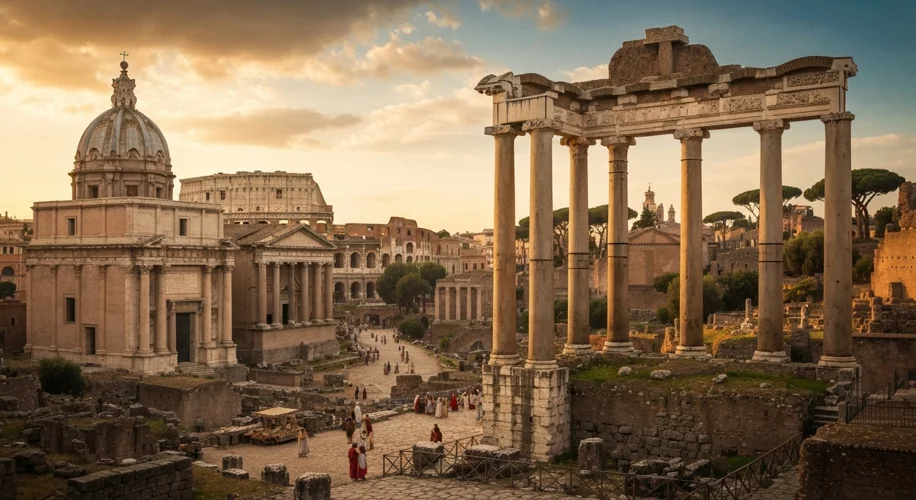The year is 73 AD. The mighty Roman Empire, a colossus of power and influence, stretches across vast territories, its legions a testament to its military might. Yet, beneath the veneer of imperial grandeur, a subtle rot had begun to fester. The common people, the backbone of this vast dominion, were growing restless. Their grievances, once a murmur, threatened to become a roar that could shake the very foundations of Rome. It was in this climate of simmering discontent that the concept of ‘panem et circenses’ – bread and circuses – was born, a potent tool wielded by ambitious rulers to maintain control.
The phrase itself, immortalized by the Roman poet Juvenal, paints a stark picture of a populace appeased not by substantive reform or genuine participation, but by the most basic of necessities and the most fleeting of entertainments. “Already from antiquity, the people who were capable of it surrendered their worries and demands to those in charge, to the kings who were always happy to provide things for them, including the distribution of grain and the pleasures of life,” Juvenal lamented in his Satires.
The origins of this strategy can be traced back to the early days of the Roman Republic, but it was during the Imperial era that it reached its zenith. The emperors, inheriting a tradition of public games and subsidized grain, amplified these offerings to unprecedented levels. Consider the reign of Augustus, the first Roman Emperor. While a brilliant statesman who ushered in an era of peace, he also understood the power of public appeasement. He generously subsidized the grain dole, ensuring that no citizen would go hungry, and sponsored elaborate public games, gladiatorial contests, and chariot races that captivated the masses.

The purpose was not merely to keep the populace fed and amused; it was a sophisticated act of social engineering. By providing the essential “bread” – the grain dole, or annona civica – rulers guaranteed basic survival, preventing widespread starvation and the desperation it bred. Simultaneously, the “circuses” – the spectacular games (ludi) – offered an escape from the harsh realities of daily life, a communal experience that fostered a sense of shared identity, however superficial.
These games were a lavish affair. The Colosseum, inaugurated in 80 AD by Emperor Titus, could hold an estimated 50,000 to 80,000 spectators. Imagine the roar of the crowd, the smell of sweat and blood, the clash of steel as gladiators fought to the death. Chariot races in the Circus Maximus were equally popular, with fierce rivalries between teams like the Blues, Greens, Reds, and Whites often spilling over into public brawls. These events were not just entertainment; they were a stage for imperial propaganda, reinforcing the emperor’s power, generosity, and divine favor.
However, this reliance on ‘bread and circuses’ had profound consequences. It fostered a culture of dependency, where the populace became accustomed to receiving sustenance and entertainment without contributing actively to the state. Civic virtue and political engagement waned as citizens became passive recipients of the emperor’s largesse. The focus shifted from civic duty to the anticipation of the next festival or distribution of grain. Furthermore, the immense cost of these public works and games placed a significant strain on the Roman treasury, contributing to economic instability in the long run.
The concept of ‘bread and circuses’ is not merely an ancient Roman phenomenon; its echoes resonate throughout history and even into our modern world. Leaders across various eras and cultures have employed similar strategies to manage public opinion and maintain power. Whether it’s subsidized welfare programs, massive public infrastructure projects, or the intoxicating allure of mass media and entertainment, the underlying principle remains the same: placate the populace with material comforts and distractions to deflect attention from deeper societal issues or political shortcomings.
Ultimately, Juvenal’s critique serves as a timeless warning. When a society prioritizes superficial appeasement over genuine engagement and structural reform, it risks creating a populace that is easily manipulated, disengaged, and ultimately, vulnerable. The legacy of ‘bread and circuses’ is a powerful reminder that true stability and prosperity are built not on fleeting pleasures, but on justice, participation, and the empowerment of the people.

